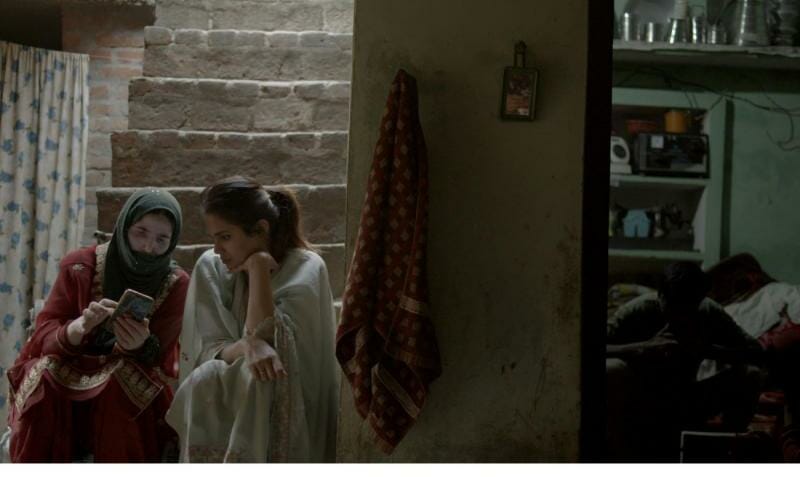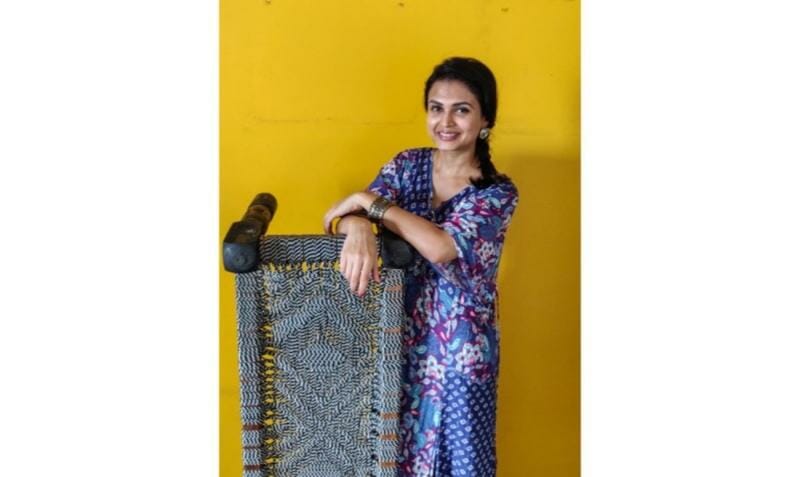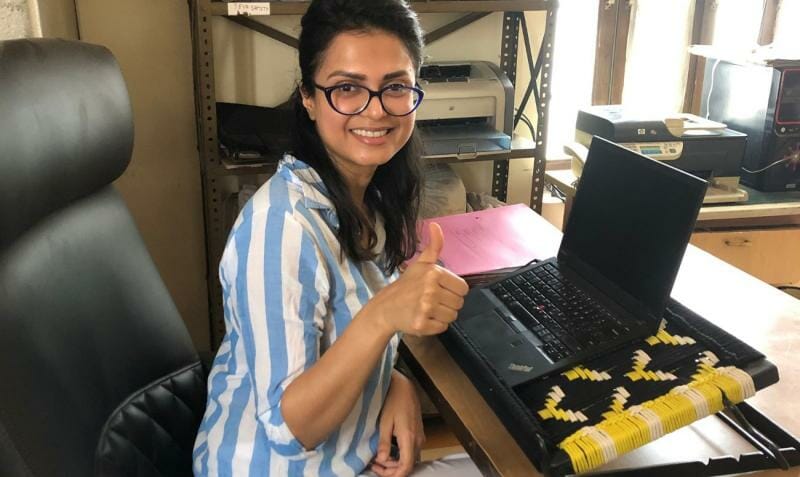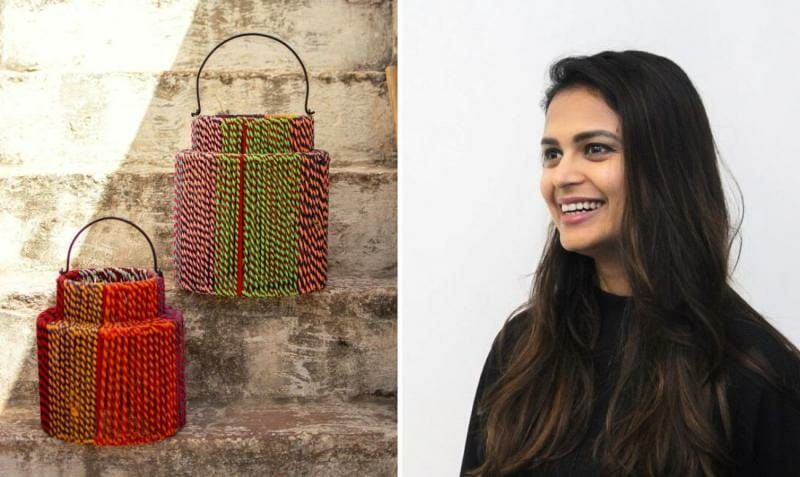Sirohi, a brand that seeks to find the best possible way to produce fair income systems for rural female artisans in order to create a circular industry that gives back as it creates, wasn’t always incepted as a lifestyle brand. Keeping style over trend, the brand’s focus was always on craftsmanship and building opportunities for artisans while simultaneously providing customers with long-lasting and treasured pieces. ThinkRight.me speaks with founder Gauri Malik to learn the thought process behind the brand and its commitment to sustainability.
ThinkRight.me: Could you please give us a brief background on yourself? What has your journey been like that led you to where you are now?
Gauri Malik: I am an investment banker turned social entrepreneur. I went to a boarding school when I was six years old, and I come from a small town called Muzzaffarnagar in Uttar Pradesh. A lot of my work is inspired by personal development as well as my life \back home in Muzaffarnagar. From experiences through my school years to my academic and professional journey in the early years.
My parents sent me to boarding school because of a lack of good quality education in Muzzaffarnagar and while I was there, I learned a lot about independence. I played basketball at a national level, I did a lot of extracurricular in school, but every time I would come home, I would see my mother very financially and emotionally dependent on my father, and this was above having amazing skills but instead no opportunities to really deploy those skills to work and earn some money being from a small town. And that really frustrated me because I was this independent, feisty person who was achieving everything, and I saw this vulnerability in my own home.
As I grew up, my academic choices leaned more toward finance economics and I went on to do my BA at St. Xavier’s College in Mumbai. I went abroad to study, did a master’s in finance and economics from Warwick Business School and while I was there at Warwick, I got the opportunity to volunteer with this microcredit organisation in Peru, South America. That experience was absolutely amazing because I worked with single mothers in barrios, which are equivalent to slums.
That’s when I realised that these are women who are from backgrounds similar to a lot of women in India and we’re still trying to make a difference in their lives by getting jobs and getting access to loans and that was very stimulating and inspiring. That trip to South America changed a lot in the way I thought.
Unfortunately, as Indians, we lead very sequential lives, especially the ones we dictate for girls. But for me, my education was in finance and economics so the right thing to do seemed like I should become an investment banker.
I went on to work with Deutsche Bank in Bombay and in Tokyo, and I was a quantitative analyst there for four years. But I was very numb by the monotony of my job, and I think I’ve always been a slightly competitive spirit in me because of my upbringing of wanting to do something more. And because I wasn’t being able to exploit everything from my talent to my skills.

So, eventually, I quit my job, and in 2012 I founded an organisation called the Skilled Samaritan Foundation the idea behind which was to give people with existing skill sets a platform to do some good. And that’s how we went on to work in a small village in Haryana called Sirohi which is now the namesake of my brand. The story of Sirohi comes a lot before the brand came to be. *laughs*
TRM: So, how did the idea for Sirohi come about?
Gauri Malik: The brand only came into being in 2019, but my work in this small village called Sirohi, Haryana began was in 2012 where I met a lot of women who are from conservative cultural backgrounds and all of these women are extremely talented, very skilled but lacked opportunity just because they were not educated and they could not step outside of their homes to work.
They were limited in opportunities because of multiple reasons. It’s not that they did not want to work, they wanted to which is what pushed me towards doing something to empower women.
However, my first project at Skilled Samaritan was actually lighting villages using solar power. We lit around 400 homes and then went on to light five more villages, and schools, impacting over 25,000 lives.
That’s when I realised that I always thought of development as a charity but that’s not how it should be. So, I stepped back, I worked with a bunch of start-ups, an UN-funded organisation based out of Geneva for a few years and then in 2019 I revived Skilled Samaritan and in 2020 I launched the brand Sirohi. As you know Sirohi is a brand that creates income opportunities for women from rural homes, we provide tech-based design support to women working in rural homes so they can make beautiful, well-designed products.
The second aspect of our work is that we try to use innovative, sustainable materials to contribute to a circular economy to create more impact then.
TRM: Was it always meant to be a sustainable interior decor brand or did it first evolve as something different?
Gauri Malik: Actually, it did evolve because like I said, it started out as this personal objective to provide income opportunities to women. So, from 2000 and 2019 to late 2020 or early 2021 we were just trying to provide women with income opportunities to make products.

And then we realised over time that only if we make well-designed beautiful products is when more and more people are going to buy them and more women are going to be able to generate money. SEE ALSO
So it’s only I think in late 2021 did we get a sense and an understanding that we are now an actual brand and we started thinking more about ourselves as like an e-commerce company, a brand that is making products backed by artisans.
TRM: And I already understand where your passion for helping women earn a fair wage comes from. But what first sparked your interest in such conscious consumerism?
Gauri Malik: So, I have never been the most conscious person. But it’s only when I started working, and I am a banker, I’m not a designer or somebody who understands materials, but when I started working, I sort of realised that there are so many materials out there.
Those that can be recycled, some that have amazing values from the point of view of sustainability and I thought, why don’t we use something which creates a dual impact, and I think that sort of consciousness developed over time as we started making our products because we realised that there were some people who were actually highly aware of what they were purchasing.
They cared about their purchases and this supported the whole artisan story. So to give the product a deeper meaning, it also needs to have a story around sustainability and I think that thought and that sort of narrative came in much later to say that we’re going to use sustainable materials, natural fibres, and more to make our products.
TRM: Right, but do you think the industry as a whole is slowly evolving into a more sustainable one? Or do you think it’s up to individuals to change that themselves?
Gauri Malik: The world we live in is very fast-paced and because it’s so fast-paced, people sometimes will have to take time to think about choices.
And as an industry, I don’t think we are responsible for what we make because we are always catering to what a buyer wants. So, if a buyer wants something and you know it helps us push our sales, there are some brands who will very consciously say no, this is beyond our brand values and ideologies but there will be other people who will say let’s give people what they want.
So I think it’s an individual’s choice, and when individuals are conscious about what they’re buying that’s when brands and the industry starts evolving and shifting toward what the consumer wants. It has to start with the consumer and for brands, there are some brilliant ones who were able to set things in stone and have strong values.
TRM: Being an entrepreneur that has a brand which helps women, but also does it ethically, what do you see as the most significant obstacles to growing such a brand?
Gauri Malik: We are so limited in our offering. We still get people who want to buy products from us that are made from different, non-sustainable materials. So that limits us and it narrows us with our target audience.
And although the world is becoming sustainable, and while I think India as a market is not there yet, international governments are taking initiative to set up policies for sustainable consumerism, and that is leading to paving success for brands like ours. India is still limited but internationally there is a huge scope.
TRM: I mean, India is still growing in terms of sustainability and ethical lifestyle, but I see a big scope in it and I’m sure that running a socially conscious business is very rewarding as an entrepreneur. Do you think that there are a few great benefits that you get from running one?
Gauri Malik: Absolutely. If you reflect on your own life choices and recently, just to give an anecdote, my dad was telling me that NASA has predicted that in the next 20 years or so in cities like Delhi, Bombay, Gurgaon, and most cosmopolitan cities you won’t be able to walk around freely. You’ll require an oxygen tank to step outside because there will be so much pollution. And I’m thinking to myself, that’s when my daughter will be in college at around 20 years old making me question what I am working towards.
I’m here talking about building a big brand but if I am not conscious about how I consume, what is the point of living in a world where you’re walking with oxygen cylinders? And that makes me reflect and just feel happy about what I am doing and how I’m contributing to the world. It’s because of people like us potentially things might get delayed or pushed back and we might not face that climate crisis so soon.
And I’m proud of myself to be able to make that choice and do what I’m doing so I wouldn’t have it any other way.
TRM: Coming to Sirohi, I know that you have unique designs, but do you have a specific target audience that you feel will appreciate the design direction you’re going in?
Gauri Malik: Well, I am not a designer, but in the very early years of Sirohi I was the one using my creativity or whatever existed of it to design a lot of the products based on functionality and usage.
And over time I realised that the functionality aspect is very important because a lot of people want products that amalgamate function and utility, not just pretty looking things There’s a huge audience for it. With time, we started juxtaposing that functionality with our design that we thought looked good, so I think there is a certain target audience that exists because we are weaving a lot of our products but it’s not like every group will buy a product from Sirohi yet just because of the limitations of the kind of materials that we use.
But we hope to get to a place where Sirohi is in every home and our aim is to inspire slow, sustainable living in people’s every day where we can create that corner in somebody’s home. Whether it’s an apartment or a house or a farmhouse or even a small cottage, whatever it is that helps them slow down, relax and unwind in, whether it’s in a Sirohi charpai, a bench or chair or stool.
And that’s the design ideology that we follow. So, I think for us, our target audience is everyone who wants to take that conscious step towards sustainable living and what I mean by sustainable living is not what you are consuming, but it’s about sustaining your lifestyle and sustaining the way you live. Because everyone is just always running and hustling, I think they’re going to burn out. So you need to have small corners in your own personal space, to be able to slow down and relax and that’s what Sirohi aims to infuse.

TRM: Can you share with us a few goals that you have for Sirohi going forward?
Gauri Malik: You know I have just one goal for Sirohi and I’m very determined to make it come true and that is I want Sirohi to be a global brand that is backed by the artisans of India. It’s a very simple goal and there’s a very strong reason for it. I realised working at Sirohi that there were lots of international brand buyers who were reaching out to us wanting to source from us, and while this is a great way to make money, have international stores buy from us, they wanted to put their own tag because they wanted to buy from us at cheap and label it and then sell it.
This had me realising that India is the second-largest economy when it comes to the artisan economy, second after agriculture. There are apparently 200 million people who are artisans in the country and they’re thriving on handicrafts as their way of generating income. Then why are we such small contributors to a global market? That’s because we settle, we settle for just giving cheap products in bulk, and we’re happy with selling them to large retailer enterprises internationally.
And because we think that’s fine, these are the established brands. So, when you walk into any store, whether it’s in New York, London, Singapore, Paris, or wherever it is, do you see any store home decor store which is from India, by India? But you will see tonnes of products from India which are not even labelled so but the moment you look at it, you recognise that it’s Indian.
Why can’t we make products and become that brand that we cater to? That is my true vision, to take Sirohi global and to leverage what we are doing, build up on what we’re working toward, to not just supply to the world but become a part of that world market and establish ourselves as a brand that is from India and by the artisans of India.
TRM: So my last question for you today is about mindfulness. Being the owner of an ethical brand, do you think the concept of mindfulness spills into other aspects of your life as well?
Gauri Malik: Absolutely. I think this is such a strong aspect of my work. It plays out in two ways.
One is as an entrepreneur, you need to be mindful to be able to take decisions on a regular basis, to be able to not react to situations and just respond because there are times when things go out of hand, things with artisans, things on the ground, things while you’re producing products.
I think mindfulness is very important from an individual perspective. To me what I’m doing is not a sprint, it’s a marathon. I have a long way to go, and you must be mindful of the way you conduct yourself, of your choices, of your decisions and so many things so if that means meditating or even taking a step toward spirituality, that helps me be mindful from a physical perspective.
I think the second aspect is the work that I do is trying to promote mindfulness, to be conscious about the way you live, and how life should be. I recently read this somewhere that we are three types of people essentially. We are people who we want to be. We are people who we are viewed as and then the third is the person who we really are and I think there needs to be some sort of alignment and I realise this more and more over time as an entrepreneur that I want to be viewed as somebody who is mindful, who is conscious of her own choices.
But in reality, I’m not yet, I’m not that conscious, I want to be more disciplined but I’m not. There still needs to be some sort of uniformity and alignment in all three of these different aspects of who you are and essentially I’m aiming to achieve this personally as well as through my brand.
Sirohi as a brand wants to provide slow sustainable products. We want people to slow down. We want people to have a simple life, so if I don’t lead it, how can I promote that to anybody else?
So yes I am consciously and constantly working towards it.
Read more: To Be Or Not To Be Perfect: Is Your Child A Perfectionist?
Like & Follow ThinkRight.me on Facebook, Instagram, Twitter, and Telegram to stay connected.






























